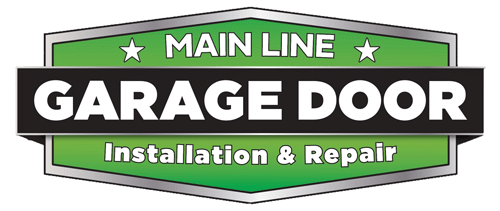Garage doors come in a variety of materials ranging from composite to wood. Finding the right material for a garage door is essential to both its form and functionality. While some materials may be better suited for certain applications than others, each type of material comes with its own advantages and disadvantages.
Here we’ll discuss the many options homeowners have when selecting a material for a new garage door. While some materials may be the perfect choice for one home, others may hold benefits you may not be aware of.
Wood Garage Doors
Before the invention of the automobile, garage doors were most often constructed of wood and swung outward from what was then called the “carriage house”. After the advent of the car, homeowners needed a more convenient way to access the garage. This led to the invention of the overhead door, which opened upward rather than outward. Yet, wood still remained the primary material garage doors were made from.
Wood comes with many benefits, including the countless design options available. Additionally, wood doors provide good insulation and have an inherent attractiveness, especially when matched to a certain style of home. Still, wood garage doors come with many disadvantages, which may be a turn-off to prospective buyers. Due to their weight, wood doors are very hard to move manually. They also need more regular maintenance and can be susceptible to rot and warping depending on the climate.
Steel Garage Doors
Steel is excellent material for anyone looking for a durable garage door. Steel is easily maintained and much lighter than wood. Steel garage doors are also highly customizable and well-suited for many applications. Other advantages of steel include low-maintenance and affordability.
While steel remains one of the most popular materials for garage doors, it does have some drawbacks. Steel is not a good insulating material for those looking to keep a climate-controlled garage space. It also dents and scratches easily and is prone to rusting if the protective coating is compromised.
Vinyl Garage Doors
Vinyl is a budget-friendly material for homeowners looking to replace garage doors without breaking the bank. Vinyl is weather and UV-resistant and is extremely durable in almost any type of environment. Additionally, vinyl is extremely lightweight and easily maintained.
Vinyl garage doors do come with some downsides that homeowners should be aware of. Bare vinyl doors lack insulation and are limited in features. Furthermore, vinyl is a difficult material to paint, making it problematic for homeowners who may want to change the color of their garage door in the future.
Aluminum Garage Doors
Aluminum is an excellent material for those looking to create a customized look to their garage entryway. Aluminum is available in a variety of designs that will match almost any exterior residential design. Resistant to rust and extremely reliable, aluminum garage doors are a great choice for many homeowners.
However, as with other materials, aluminum has disadvantages as well. It is less resilient than steel and is easily dented and scratched. Aluminum is also a poor insulator and can be susceptible to water damage which will cause corrosion over time.
Fiberglass Garage Doors
Fiberglass is an excellent alternative to wood when it comes to garage doors. Fiberglass can be molded to appear as wood, yet lacks all the problems a homeowner would encounter with traditional wooden doors. Unlike their counterpart, fiberglass will not warp or rot when exposed to moisture and temperature fluctuations won’t cause expansion or contraction issues. They are extremely low maintenance and can be designed to match any type of home.
Several things to keep in mind when it comes to fiberglass garage doors is their fragility when it comes to high winds. Fiberglass is naturally brittle and prone to cracking and breaking under pressure. Additionally, as it ages, fiberglass can yellow, making it unattractive if not maintained properly.
Glass Garage Doors
Glass is yet another material used in garage door construction and has increased in popularity in recent years. Glass garage doors typically incorporate an aluminum frame that holds each glass panel in place. Glass comes in a variety of designs and is an extremely attractive addition to almost any type of home.
Some drawbacks to glass include poor insulating properties and price. The cost of a glass garage door can be at least twice as much as traditional materials.
Composite Garage Doors
Finally, composite materials are excellent for garage door construction. These engineered products provide a wide range of benefits, including durability and budget-friendly. Additionally, composite garage doors can be made to look just like wood and are an ideal choice for homeowners looking to boost curb appeal.
Composite products, similar to other materials, also come with some shortfalls. Composites can be easily damaged in certain circumstances. Once damage occurs, they can also be hard to repair and have a tendency to be difficult to paint.
Main Line Garage Door: Your Source for High-Quality Garage Door Services
Main Line Garage Door is a leading provider of garage door services throughout the region. We offer a wide selection of services, including garage door spring repairs in Chester County. We also specialize in commercial door installations in Montgomery County and the surrounding areas. Contact our team today for more information and to schedule an appointment.
